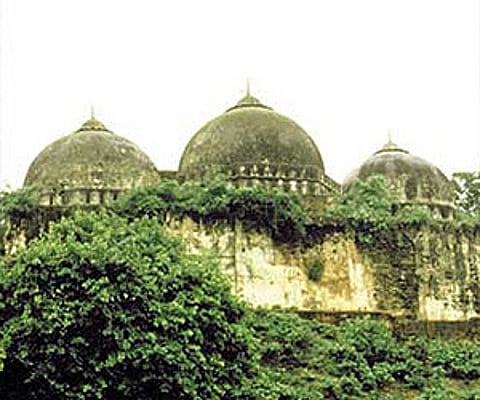

AYODHYA: Twenty-four years after that frantic day in December, the Babri Masjid-Ramjanmabhoomi site in Ayodhya is still bristling with security guards. As heavily armed policemen keep an eye from watchtowers, you go through six points of frisking and metal detector passages before you get to have a darshan of Ram Lalla from 30 ft away. Every inch of the premises is watched by CCTV cameras. And somewhere deep inside is an armoury stocked well enough to fight a small-scale war.
Along the walk towards the exit are innumerable shops selling toys, books, imitation jewellery, puja items and pictures of Lord Ram. Despite the melee, you cannot miss the CDs played endlessly by shop keepers on their TV screens, depicting the demolition of the Babri Masjid on Dec. 6, 1992.
Yet in this epicentre of a temblor that upended India’s conventional politics, you hear few resonances of Ram Janmabhoomi being an issue in this election. While the odd old-timer might mention his dream of a Bhavya Ram Mandir, the youngsters here, many born after 1992, talk about jobs and development.
Ayodhya and its sister town of Faizabad voted today. Almost all roads, full of election festoonery, were empty and shops closed as people made a beeline to the polling booths.
“I want a government that will provide jobs. I have grown up hearing stories about the Ram Mandir-Babri Masjid issue. But I want development,’’ says Abhay Gupta, an 18-year-old whose father, Rambabu Gupta, runs a shop just in the bylanes of the Hanuman Garhi temple.
Another first-time voter, Manish Kumar, was even more forthcoming on his bijli sadak pani expectations: “We have all seen how families have suffered in Ayodhya. The scars are still afresh. I was not even born then (1996) but I know many such families including Muslims who suffered. Let the netas talk about development, jobs, infrastructure. Enough of this communal nonsense. No one is in the mood to take it anymore,’’ he said.
Interestingly, the talk of the town during this election season has been Bazmi Siddiqui, the first Muslim ever to contest from the temple town. He’s the BSP candidate here. The 34-year-old candidate’s followers say that Behenji has dared to do something that no other party has done for decades.
There are over 3.60 lakh voters in Ayodhya of which only about 7,000 are Muslim. In pockets of the town where Muslims reside, Bazmi Siddiqui is a clear favourite. “We have left the mandir-masjid issues far behind. We want basic
amenities. Whatever happens to the mandir-masjid issues (in the court), how will it help us?’’ asks Muhammed Jameel of Faizabad.
The BJP candidate, Ved Prakash Gupta, has done a whole parikrama of political parties in the last 10 years. Showing a loser’s touch, he contested on a Samajwadi party ticket in 2007 and a BSP ticket in 2012 and now has returned to the BJP.
The BJP has won five elections here, four of them post-demolition. The party lost in 2012 by a small margin of about 5,000 votes to the SP candidate Tej Narayan Pandey, the sitting MLA.
Interestingly, all the left parties are supporting a social activist, Surya Kant Pandey who is leaving no stone unturned to expose the “communal politics” of the other parties.